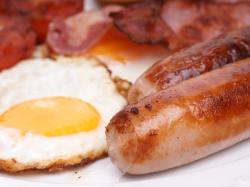31 Million U.S. Consumers Skip Breakfast Each Day, Reports NPD
October 13, 2011 | 4 min to read

Chicago — Although most U.S. consumers begin their day with breakfast, one out of 10, or 31 million don’t, according to a recent food market research study conducted by The NPD Group, a leading marketing research company.
NPD’s Morning MealScape 2011 study, which delves deeply into the situational factors and attitudinal drivers impacting consumers’ food and beverage choices in the morning, finds that males, 18-34, have the highest incidence of skipping (28 percent) whereas those adults 55 and older have the lowest incidence of skipping (11 percent for males, ages 55 and older, and 10 percent for females in this age range) among adults. Among children, the incidence of skipping — percent of individuals who are up, but don’t eat or drink anything in the morning —increases as children age with 13-to-17-year-olds having the highest incidence (14 percent) of skipping.
Percent of Adults, By Gender, Who Skip Breakfast
|
Males |
Females |
|
|
18-34 years old |
28% |
18% |
|
35-54 years old |
18% |
13% |
|
55+ years old |
11% |
10% |
Source: The NPD Group/Morning MealScape 2011
Among the reasons individuals give for not eating or drinking anything prior to 11 a.m. is that they weren’t hungry/thirsty or didn’t feel like eating or drinking. Other top reasons are that they didn’t have time and were too busy. Adult females show a higher propensity to skip a morning occasion due to a time constraint, like being too busy, rushing to get out the door, or running late.
For those who do eat a morning meal, three-fourths have their morning meals, snacks and beverages in their home. Approximately one in five consume foods and beverages in the morning both at-home and away-from-home on a typical day; and 14 percent of individuals have their morning meals away from home.
“With 31 million people skipping breakfast each day there is a significant opportunity for food and beverage marketers to reach these consumers,” says Dori Hickey, director, product management at NPD and author of Morning MealScape 2011. “Marketing messages emphasizing the importance of having a morning meal should be age and gender specific in order to increase their effectiveness. To convert teens, a two-pronged approach may be necessary – one that appeals directly to teenagers; the other to provide strategies for parents of teens.”
Methodology:
NPD’s Morning MealScape 2011 study was fielded daily online from January 10 through March 7, 2011 and included 27,179 participants, both adults and children (parents answered on behalf of their children, age 2-5). Participants reported on yesterday’s consumption behavior from the time they got up until 11:00 a.m.
About The NPD Group, Inc.
The NPD Group is the leading provider of reliable and comprehensive consumer and retail information for a wide range of industries. Today, more than 1,800 manufacturers, retailers, and service companies rely on NPD to help them drive critical business decisions at the global, national, and local market levels. NPD helps our clients to identify new business opportunities and guide product development, marketing, sales, merchandising, and other functions. Information is available for the following industry sectors: automotive, beauty, entertainment, fashion, food, home and office, sports, technology, toys, video games, and wireless. For more information, contact us, visit http://www.npd.com/, or follow us Twitter at https://twitter.com/npdgroup.
Source: The NPD Group, Inc.
